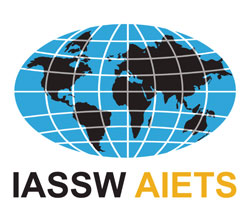The Statement On the Earthquake in Turkiye and Syria
A devastating earthquake struck southern Turkiye and northern Syria early in the morning of 6 February 2023. The 7.8Mw earthquake with its epicentre near the city of Gaziantep devastated vast swathes of urban and rural settlements and affected millions of people. A strong aftershock of 7.5 Mw occurred 9 hours later. This had its epicentre in the the Elbistan district of Kahramanmaras province about 100 kms away from Gaziantep and added substantially to the chaos. The death toll, currently horrific, is climbing. People, livelihoods, animals, buildings, and landscapes fell under the initial shaking and more succumbed in the aftershocks that followed. The emotional turmoil such widescale devastation leaves in its wake is complex and difficult to absorb. It can take years to recover as people try to adjust physically and mentally to the enormous losses they have suffered. The grief they endure as they realise that the world that they have known has gone forever is deep and may require long-term psychosocial support. However, the people who have been affected are also courageous and strong. They are resilient. They have knowledge and skills that are useful in surviving against the odds in unbearably cold weather. They also have to undertake the necessary extensive rebuilding of their communities as soon as possible. They must begin to build a new and better future now. Yet, to rebuild their lives, the victim-survivors of this earthquake need external support, particularly in the form of money to buy the materials necessary to physically reconstruct the built infrastructure ranging from homes for people, to the built infrastructures that make daily life possible – schools, medical clinics, hospitals, public institutions, shops, communication, power, water, sanitation systems, transportation hubs, leisure services and more. Such total devastation requires generous forms of support and solidarity.
The International Association of Schools of Social Work (IASSW) is astounded by the scale of this calamity and stretches out the hand of solidarity to help the people living in the affected areas. IASSW advises its members who can do so to donate financial assistance to help these victim-survivors as a matter of urgency. There will be local and national schemes in their own countries that members can use to channel funds. However, given the cultural norms that ought to be observed in Turkiye and Syria, IASSW suggests that the Red Crescent Societies (affiliated to the International Federation of the Red Cross and Red Crescent Societies or IFRC) can also receive such donations. The Turkish Red Crescent and Syrian Arab Red Crescent are already delivering aid in the field. They require funds urgently and donations can be made through their website on this url:
IASSW has a lengthy tradition of supporting people in their hour of need. This is another example of IASSW acting to support people throughout the world.
Submitted by Lena Dominelli,
Chair of the Disaster Interventions, Climate Change and Sustainability Committee
International Association of Schools of Social Work (IASSW)
9 Feb 2023









